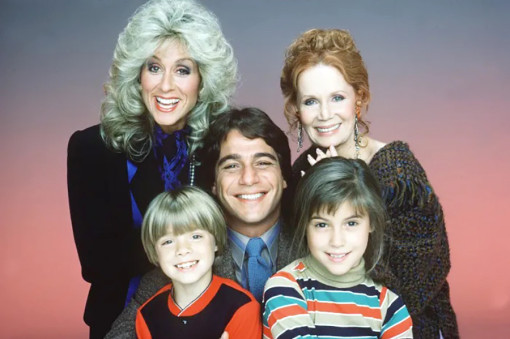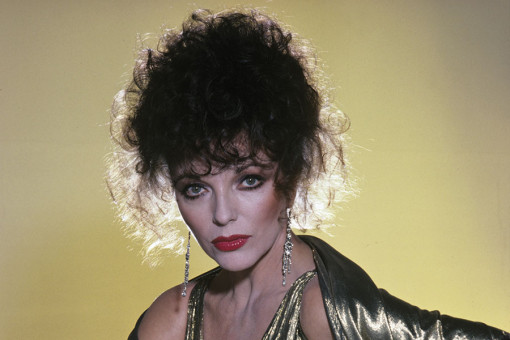Joe Franklin, the famed New York talk show host, died on January 24. Here, we remember him with this article that ran in emmy magazine in 2011.
Pioneering talk show host Joe Franklin wooed New York TV audiences for 43 consecutive years with his schmaltzy, schmoozy style.
By the time he left the air in 1993, he’d done a whopping 21,425 episodes and thrown the spotlight on 300,000 guests, give or take.
2011 marked the 60th anniversary of Franklin’s chatfest premiere and the 85 birthday (March 9) of this bona fide New York character, who claims to have given superstars like Barbra Streisand their first shot on TV.
Nowadays he can be heard interviewing celebrities on Bloomberg Radio, but for more than four decades the Bronx-born “King of Nostalgia” appeared on television, wandering genially down Memory Lane, speaking mostly to veteran stars.
He sometimes had as many as 20 panelists on a single show, with big-name guests — Jack Benny, Cary Grant, John Lennon, Diana Ross — sitting alongside has-beens, would-bes and never-weres. Many of the latter were oddball novelty acts, unworthy of The Gong Show, but everyone received Franklin’s rhapsodic praise.
At 17 he was writing jokes for comedian Eddie Cantor’s radio show. Three years later he snagged his own record-spinning program.
That led in 1951 to his first live TV show, Joe Franklin, Disk Jockey, on New York’s WJZ (which in 1953 became WABC).
Very soon the program was restyled as The Joe Franklin Show, which in turn became Joe Franklin’s Memory Lane on WOR in 1962.
In 1970 it was The Joe Franklin Show again, and the ‘70s also brought a color broadcast and videotape. In 1979, when WOR (now WWOR) became a satellite superstation, the show found viewers nationwide.
By the time Franklin hosted the last episode, he’d become known by a younger generation, courtesy of Billy Crystal’s spot-on take-offs on Saturday Night Live.
Franklin conducts business in a one-room office near New York’s Times Square packed wall-to-wall with show biz memorabilia, kitsch and pure junk.
Continually picking up twin telephones that ring nonstop, he sits surrounded floor to ceiling by brimming shopping bags, suitcases, hat boxes, old books, LPs, sheet music, vintage playbills, photo blow-ups, used coffee cups and paper plates.
Poking from the jumble are a bottle of Chivas Regal with glasses in a see-through box, a Christmas stocking, a weathered stuffed bunny, Gene Autry’s Singing Cowboy Collection, a monkey lamp base and a Bible.
Emmy contributor Jane Wollman Rusoff visited Franklin, when he amiably restrained himself from answering the phones.
You left Columbia University to get into radio — how did that happen?
Yes, I was studying to be a journalist. One day I had a date with a receptionist at WNEW. [Disk jockey]
Martin Block walked into the lobby and said, “My record picker just quit. Would you like to work for me?” It came from heaven. He knew nothing about me, and I knew nothing about music. I had to get an overnight crash course in the big bands.
How did you move into television?
WJZ-TV heard me on the radio and said, “We’ll give you an hour a day. What kind of show might you do?” I said, “Talking nose to nose, eyeball to eyeball.” They said, “You’re out of your mind! You can’t do a talk show on television!”
How did it go at first?
I caught on like a house afire. My first sponsor was Soft-Spun Paper Products. I was the first one to advertise toilet paper. My deal with the station was 50-50.
Within two months, I was making $28,000 a week, more money than the whole station combined. So they cut me down to 20 percent, then 10 percent.
What’s your strongest talent as a host?
Looking into the eyes of the guest. You’ve got to get them to relax and be hypnotized, like they’re just talking. I didn’t want a studio audience. It would have drowned out the jokes.
Why did big stars want to come on your local show?
I was fair and decent. Today, it’s ridiculous the way they ridicule everybody. It’s become very mean and evil-spirited. My style will never come back. It can’t come back: ordinary, everyday conversation.
Did you have any major disasters?
I pronounced Ernest Borgnine’s name wrong — “Borg-nini.” He walked out.
I asked Jerry Lewis, “How’s Dean Martin these days?” He took a real swing at my chin: “Don’t you know we broke up 10 years ago!”
And I told Rosemary Clooney I saw José Ferrer in Man of La Mancha. She said, “We’re not married anymore, Charlie!” and walked off the set.
Why didn’t you take the show national?
had many offers. Maybe now I’m sorry. But I wanted to retain the feeling of the New York City bounce.
Was it traumatic, stopping your show after 43 years?
Not at all. I just signed off. Monday morning it was like it never happened. The show wasn’t my life. I could have been an accountant or plumber.
Why did you retire?
They kept putting me on later and later because they were running infomercials. They can make $4,500 for that hour — with my show, 12 cents. So I wanted to exit gracefully before I got evicted.
During your career you had a couple of interesting secretaries, Julia Roberts and Bette Midler.
Julia made her first TV appearance with me when she was about 18. I told her, “You’re going to make it [in films] because your teeth, your eyes, your voice — they all match.”
When Bette was working for me, she was also checking coats at a club. She always said her arm was tired from helping people on with them.
You wrote in your book, Up Late with Joe Franklin, that you had a fling with Marilyn Monroe. Wow.
It’s not true. They touched up the book to say that. she was also checking coats at a club. She always said "They wanted something sexy in there." We got friendly, but we never had anything intimate.
You always asked your TV guests to give you a personal memento. How many did?
About 5,000. I’ve got Bing Crosby’s hat, George Raft’s sweater, Joe DiMaggio’s yarmulke, Rudolph Valentino’s coffee cup — with coffee from 1926 still in it — Al Jolson’s razor, Eddie Cantor’s blackface. It’s all hidden back there in this room.
How do you find anything in this disarray?
I can’t have a neat office. I really tried, but I throw things down. Albert Einstein, a good friend of mine, told me that neat freaks were sicker than people like me who are slobs. My office is a place where I can lean back and lounge.
How do you see the future of TV talk shows?
A big turnover is coming soon. There’s a kind of sameness now. I never watch them. They bore me.
What do you watch?
Repeats of The Joe Franklin Show. I saw some last night, with Dorothy Lamour and Kate Smith. I like to watch The Ed Sullivan Show, too.
Care to do another TV talk show?
I doubt it severely. People ask me to name my price and format. But I’m okay just doing radio interviews.
Do you have any hobbies?
I watch old silent pictures. I’ve never played cards or golf or gone to a horse race. I don’t travel. I’ve never been to a beach in my life. I never had a driver’s license or a credit card.
I only recently got a phone with push buttons. I have no fax, no cell phone, no computer. Got nothing technical.
Would you say you’re a loner?
Yeah, I’m quite reclusive. I haven’t gone out to the movies in 20 years.
Do you still have your public company, Joe Franklin Productions, Inc.?
No. I phased that out about a year ago. The “Inc.” stood for I Need Cash.












